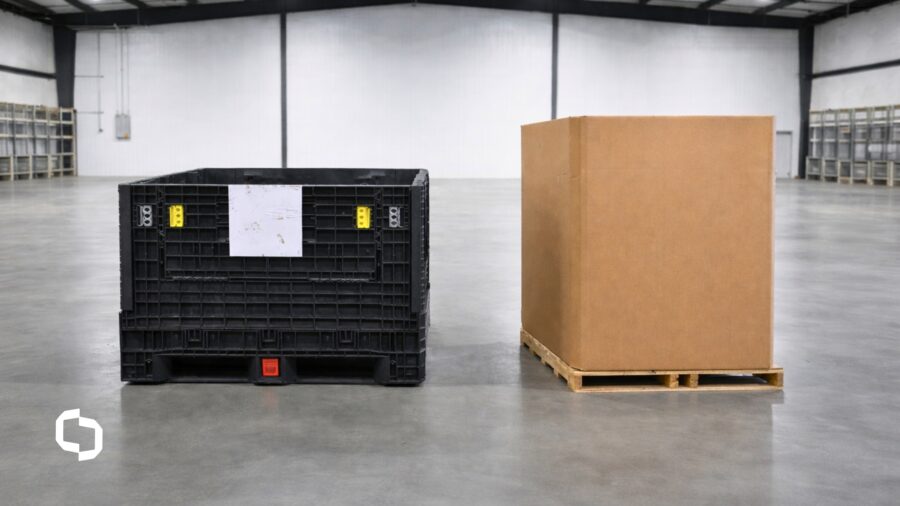Making the Choice Between Container Leasing vs Buying
Every business decision carries weight, but some choices redefine the trajectory of your operations. When managing storage and logistics, deciding whether to lease vs buy containers is more than a financial decision—it’s a strategic move with lasting impacts on your bottom line, efficiency, and environmental footprint.
Leasing offers flexibility and sustainability, while ownership delivers control and potential long-term savings. But which path aligns with your business goals? By examining each option’s financial, operational, and environmental impacts, you can make an informed decision that aligns with your business’s goals and values.
Is Leasing Worthwhile?
Leasing containers is an attractive option for businesses looking to scale quickly or reduce upfront costs. It provides flexibility, allowing companies to adjust their container usage based on changing demands without committing to significant capital investments.
Other than financial flexibility, leasing also offers significant sustainability benefits. For instance, reusable plastic containers (RPCs) drastically reduce carbon emissions compared to single-use cardboard boxes. Research shows that leasing RPCs emits just 15 tons of CO₂ equivalent, compared to 37 tons for cardboard boxes. The advantage grows with every reuse—RPCs can be used up to 120 times in their lifespan, while cardboard boxes are often discarded after a single use.
Leasing also simplifies maintenance. Each leased container is inspected and repaired after use, ensuring you always have access to reliable, high-quality containers. And with Extera’s asset tracking software, leasing goes beyond physical containers. You gain visibility into your inventory, enabling efficient tracking and minimizing losses.
Why Buying Containers Could Be the Right Move
On the other hand, buying containers might be the perfect choice for businesses with predictable, long-term storage and logistics needs. Ownership provides control and flexibility, allowing containers to be customized to meet your unique requirements, such as size, branding, or specific operational features.
While the upfront investment is higher, owning containers can result in significant savings over time. For companies with consistent container usage, the per-use cost of owned containers is often lower than leasing.
Additionally, Extera supports businesses that purchase containers with repair and replacement programs. Our services ensure your investment continues to deliver value without added stress. Containers are also delivered on a just-in-time basis, helping you efficiently manage your inventory and reduce storage requirements.
Planning for unexpected needs? Our large asset pool allows us to accommodate unforeseen spikes in demand, ensuring your operations run smoothly even during peak periods. Ownership offers a reliable and scalable solution tailored to your business’s growth and operational needs.
The Sustainability Factor
Sustainability is a key consideration for many businesses today. Leasing RPCs not only reduces waste but also significantly lowers carbon emissions. At an average of 6,750 containers leased monthly, companies can save approximately 2.7 million pounds of carbon emissions each month by choosing plastic containers over alternatives.
Beyond replacing cardboard boxes, reusable containers also eliminate the need for wooden pallets. Due to their treated wood, wooden pallets are challenging to dispose of and often non-recyclable. They can also be easily damaged, creating safety hazards and operational headaches.
Even the production process of reusable plastic containers supports sustainability goals. For example, producing 1,000 pounds of HDPE plastic emits 1,400 pounds of CO₂, while the same amount of corrugated cardboard generates 2,000 pounds of CO₂. By leasing or buying reusable containers, businesses minimize their reliance on resource-intensive materials and align with circular economy principles.
This environmental impact isn’t just good for the planet—it also strengthens your business’s reputation. Customers increasingly value eco-conscious practices, and demonstrating a commitment to sustainability can set your company apart in a competitive market.
Aligning Your Business Goals with the Right Container Choice
So, should you lease or buy? The answer depends on your business’s unique needs and goals:
- Lease containers if your operations are scaling quickly, you value operational flexibility and cost efficiency, or you want to utilize RPCs without the burden of maintenance.
- Buy containers if your container usage is stable and predictable, you have the budget for upfront investments, and you want full control over your assets.
Both approaches have their advantages. The key is to align your choice with your financial goals, operational requirements, and sustainability objectives.
Deciding between leasing vs buying containers is a pivotal choice that affects your business’s efficiency, costs, and environmental impact. Leasing offers flexibility, reduced emissions, and simplified maintenance, while buying provides ownership, potential long-term savings, and customization options. At Extera, we specialize in helping businesses find the perfect reusable solution. Whether you’re looking to lease for flexibility or invest in ownership, we’re here to guide you every step of the way.
Ready to take the next step? Contact Extera to explore our leasing and buying options and discover how we can help your business thrive with sustainable, efficient container solutions.



